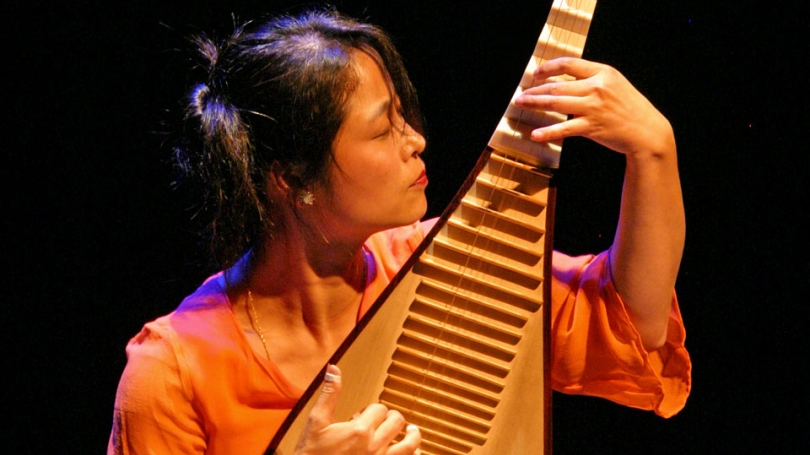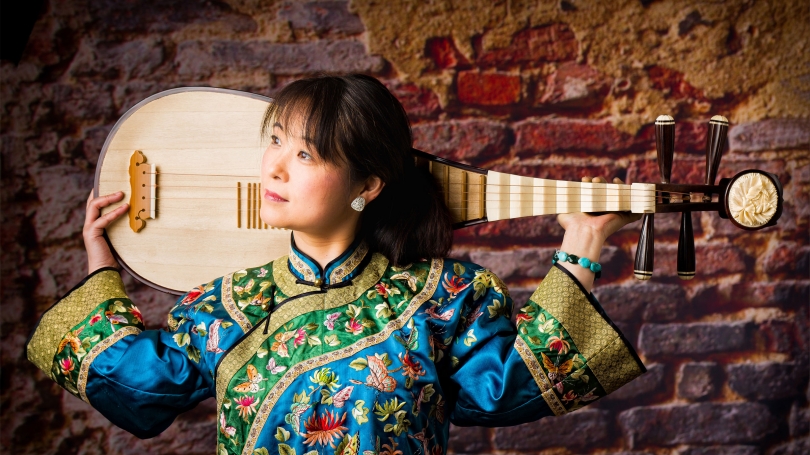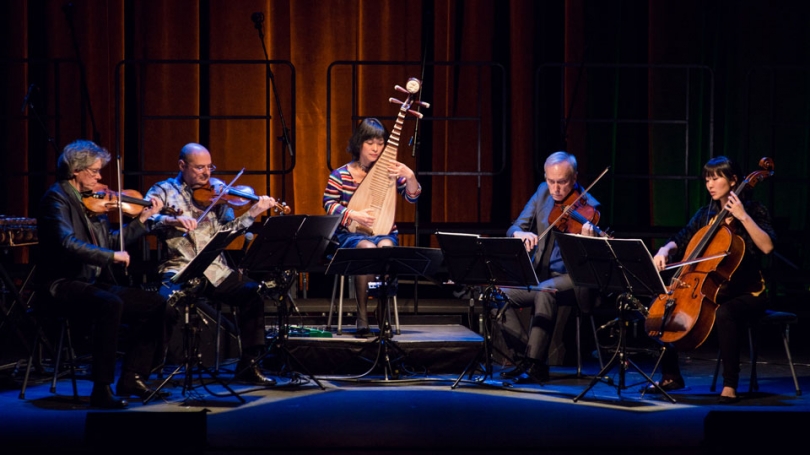Wu Man and the Ancient Pipa: 10 Things You Should Know
Novi Zhukovsky
Learn about the ancient Chinese pipa – a beautiful instrument with a rich history.
- The origins of the pipa date back to the Qin and Han Dynasties of China (around 200 BC) – giving the instrument a history of over 2,000 years.
- The word "pipa" is actually an onomatopoeia, mimicking the "pi" and "pa" sound that is made when the instrument's strings are plucked.
- A pipa is comprised of four strings and is tuned to produce notes in the order A-D-E-A.
- Historically, the pipa was played using one's natural fingernails; however, as the strings transitioned from being made of soft silk to heavy steel, it became customary to apply false nails instead.
- A pipa player uses their right hand to pluck and flick the instrument, while their left hand controls the tone of the sound by bending and rubbing the strings.
- Modern versions of the pipa tend to be 40 inches in length, with a narrow neck and circular body.
- Although visually similar to a guitar, the pipa is typically held vertically and the strings are flicked outward, unlike the modern guitar.
- Traditional Chinese pipa compositions can be divided into four categories: Wen (civil), wu (martial), da (large) and xiao (small). Wen and wu refer to the mood and style of the piece, with wen typically being more romantic and lyrical, while wu projects a more intense sound, at times describing battle stories. Da and xiao describe the length of the piece, either being long and more complex or short.
- There are many different styles and techniques for playing the pipa, but most of them stem from two different original schools of music during the Qing dynasty: the Northern, or "Zhili" school, and the Southern "Zhejiang" school.
- Wu Man is one of the most famous pipa players of our time. Born in China, Wu Man was the first pipa player to receive a masters degree in the discipline. She will also be performing at the Hop on January 25 at 7:30 PM. And since you now know so much about the pipa, go buy a ticket and see an award-winning musician play this enchanting and ancient instrument – you won't be disappointed!


